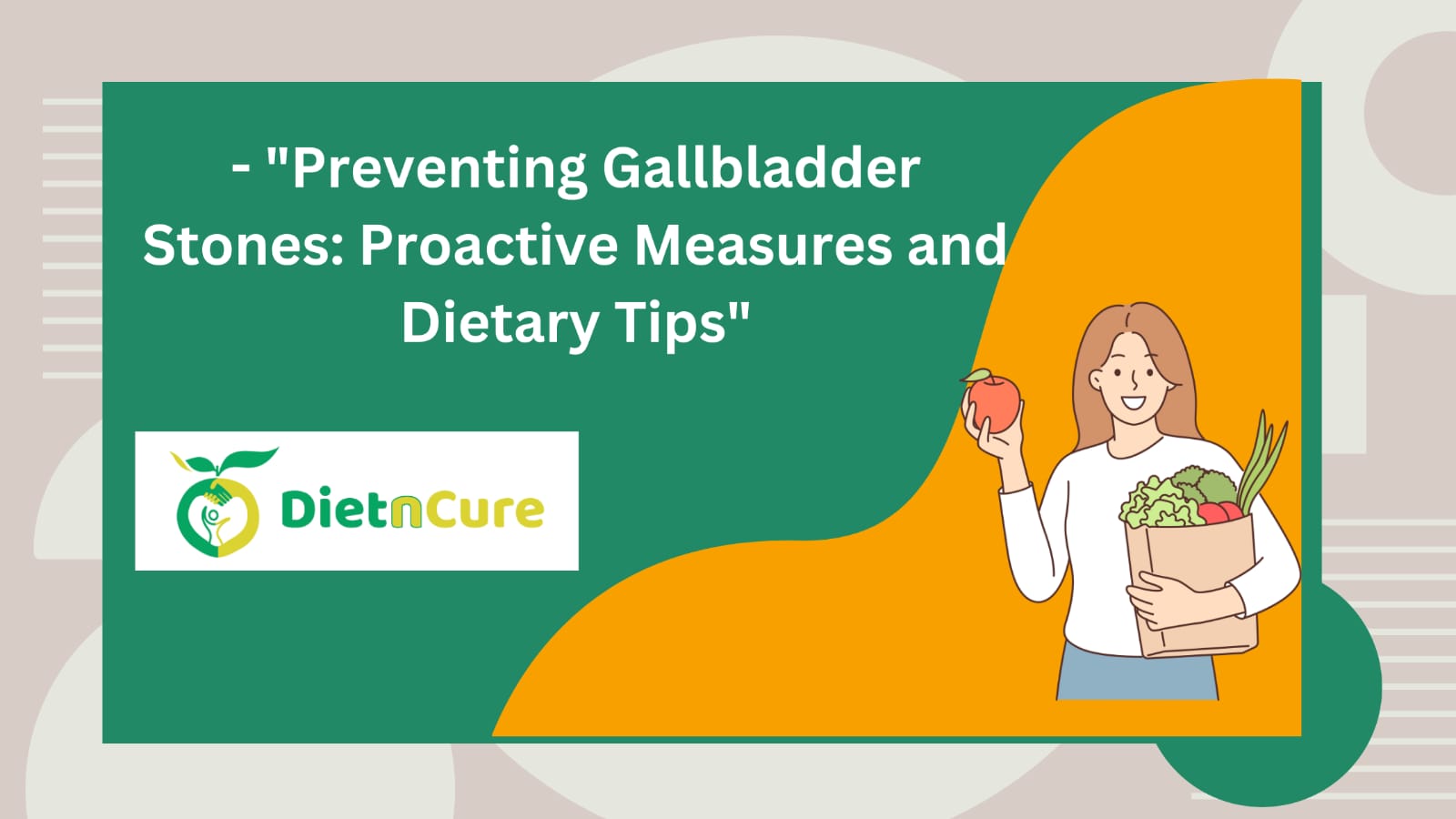Introduction
Welcome to a journey dedicated to safeguarding the health of your gallbladder – a small yet vital organ responsible for storing bile produced by the liver. Gallbladder stones, also known as gallstones, are a common condition that can cause significant discomfort and complications if left untreated. However, by adopting proactive measures and making informed dietary choices, you can reduce your risk of developing gallbladder stones and promote optimal gallbladder health. In this comprehensive guide, we'll explore preventive strategies and dietary tips to keep your gallbladder in top condition.
Understanding Gallbladder Stones
Before delving into prevention strategies, let's take a moment to understand gallbladder stones and their impact on health. Gallstones are hardened deposits that form in the gallbladder, ranging in size from small sand-like particles to larger stones. These stones can obstruct the flow of bile, leading to symptoms such as abdominal pain, nausea, and vomiting. While the exact cause of gallstones is not always clear, factors such as genetics, diet, and lifestyle can contribute to their formation. By adopting proactive measures and making dietary modifications, you can reduce your risk of developing gallbladder stones and promote overall gallbladder health.
Proactive Measures for Preventing Gallbladder Stones:
- Maintain a Healthy Weight: Strive to achieve and maintain a healthy weight through a combination of balanced nutrition and regular exercise. Excess body weight, particularly abdominal fat, increases the risk of gallstone formation by altering bile composition. Focus on consuming nutrient-dense foods and engaging in physical activity to support weight management and gallbladder health.
- Stay Hydrated: Hydration is key to preventing gallstone formation as adequate fluid intake helps maintain bile solubility. Aim to drink at least 8-10 glasses of water per day, and include hydrating foods such as fruits and vegetables in your diet. Stay mindful of your fluid intake, especially in hot weather or during physical activity, to support optimal gallbladder function.
- Embrace a High-Fiber Diet: Fiber-rich foods promote healthy digestion and may reduce the risk of gallstone formation by aiding in bile excretion. Include plenty of fruits, vegetables, whole grains, and legumes in your meals to increase fiber intake. Incorporating foods like oats, apples, beans, and broccoli into your diet can support regular bowel movements and gallbladder health.
- Limit Saturated and Trans Fats: Reduce consumption of foods high in saturated and trans fats, as they can raise cholesterol levels in bile and contribute to gallstone formation. Opt for lean sources of protein, such as poultry, fish, and legumes, and choose healthy fats like olive oil, avocado, and nuts. Minimize intake of processed foods, fried foods, and baked goods containing trans fats to support gallbladder health.
- Optimize Omega-3 Fatty Acids: Incorporate omega-3 fatty acids into your diet to promote gallbladder health and reduce inflammation. Include fatty fish such as salmon, mackerel, and sardines in your meals at least twice a week. Alternatively, supplement with plant-based sources of omega-3s like flaxseeds, chia seeds, and walnuts to support bile flow and reduce the risk of gallstone formation.
- Consume Moderate Alcohol: Limit alcohol consumption to moderate levels, as excessive alcohol intake can impair gallbladder function and increase the risk of gallstones. Stick to recommended guidelines, which suggest up to one drink per day for women and up to two drinks per day for men. Be mindful of alcohol's impact on overall health and consider alternatives such as herbal tea or infused water.
- Incorporate Herbal Support: Certain herbs and spices have been traditionally used to support gallbladder health and promote digestion. Consider incorporating herbs like turmeric, dandelion root, and peppermint into your cooking or as herbal supplements. These botanicals may aid in bile production, improve gallbladder function, and reduce the risk of gallstone formation.
Dietary Tips for Gallbladder Health:
- Emphasize Plant-Based Foods: Prioritize a plant-based diet rich in fruits, vegetables, whole grains, nuts, seeds, and legumes. These foods are high in fiber, vitamins, minerals, and antioxidants, which support digestive health and reduce the risk of gallstones.
- Moderate Animal Protein: Choose lean sources of animal protein, such as poultry, fish, and low-fat dairy, in moderation. Limit intake of red and processed meats, which are high in saturated fats and may contribute to gallstone formation.
- Balance Macronutrients: Aim for a balanced intake of carbohydrates, proteins, and fats to support overall health and gallbladder function. Include healthy fats from sources like olive oil, avocados, and fatty fish, and opt for complex carbohydrates from whole grains, fruits, and vegetables.
- Practice Portion Control: Be mindful of portion sizes to prevent overeating and excess calorie consumption. Eating smaller, more frequent meals throughout the day can help regulate bile secretion and reduce the risk of gallstone formation.
- Avoid Rapid Weight Loss: Gradual, sustainable weight loss is preferable to rapid weight loss, as crash diets can increase the risk of gallstone formation. Focus on making long-term lifestyle changes that promote gradual weight loss through healthy eating and regular physical activity.
Conclusion
As we conclude our exploration of preventive measures and dietary tips for gallbladder health, remember that small lifestyle changes can have a significant impact on your well-being. By incorporating proactive measures such as maintaining a healthy weight, staying hydrated, and adopting a balanced diet rich in fiber and healthy fats, you can reduce your risk of developing gallstones and support optimal gallbladder function. Consult with a healthcare professional or registered dietitian for personalized guidance and recommendations tailored to your specific needs. Prioritize your gallbladder health today to enjoy a lifetime of digestive wellness and vitality.

.png)
